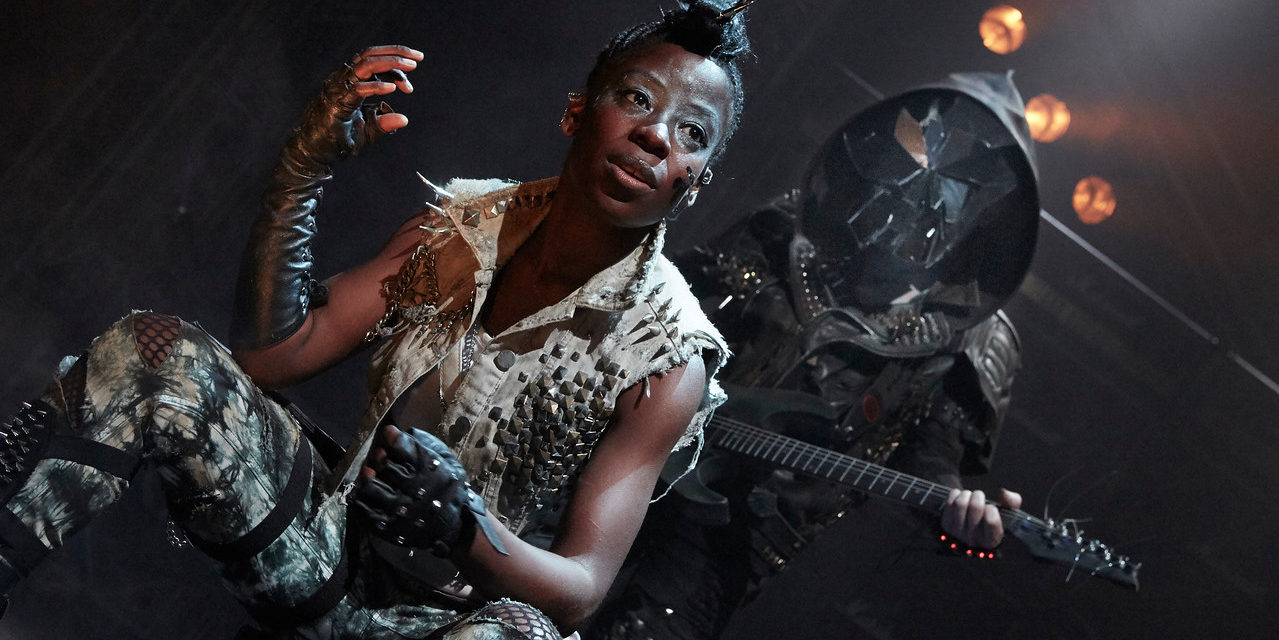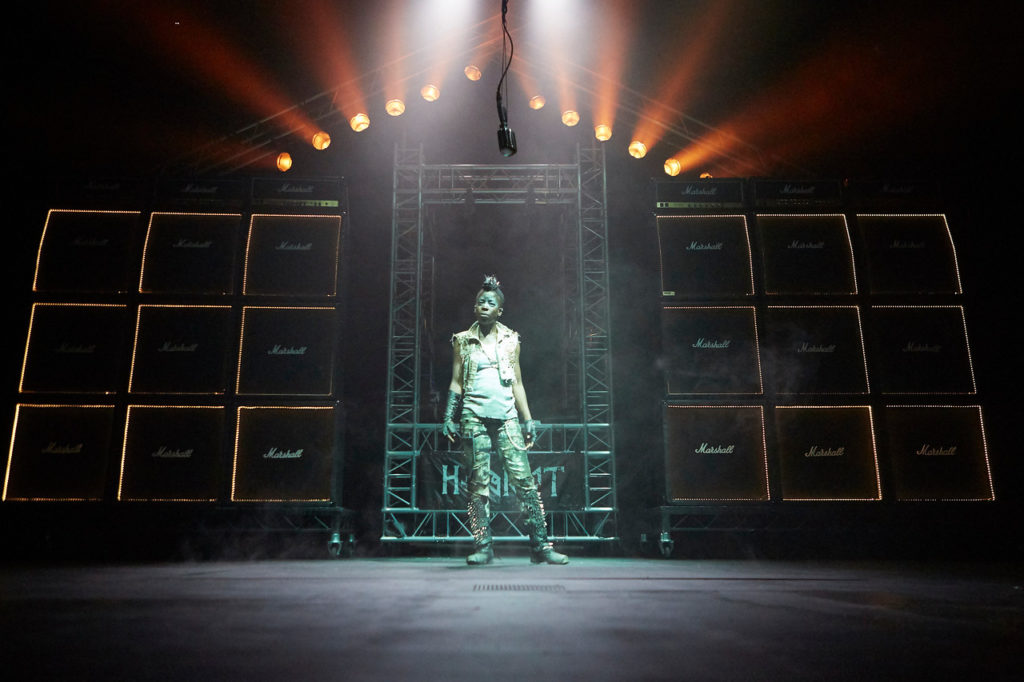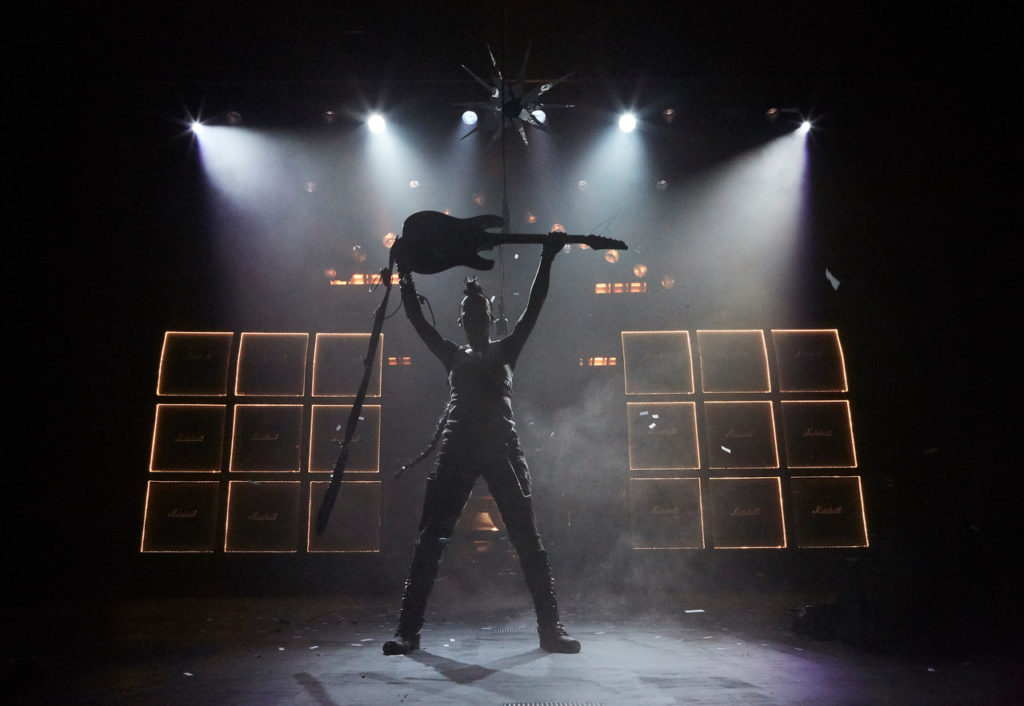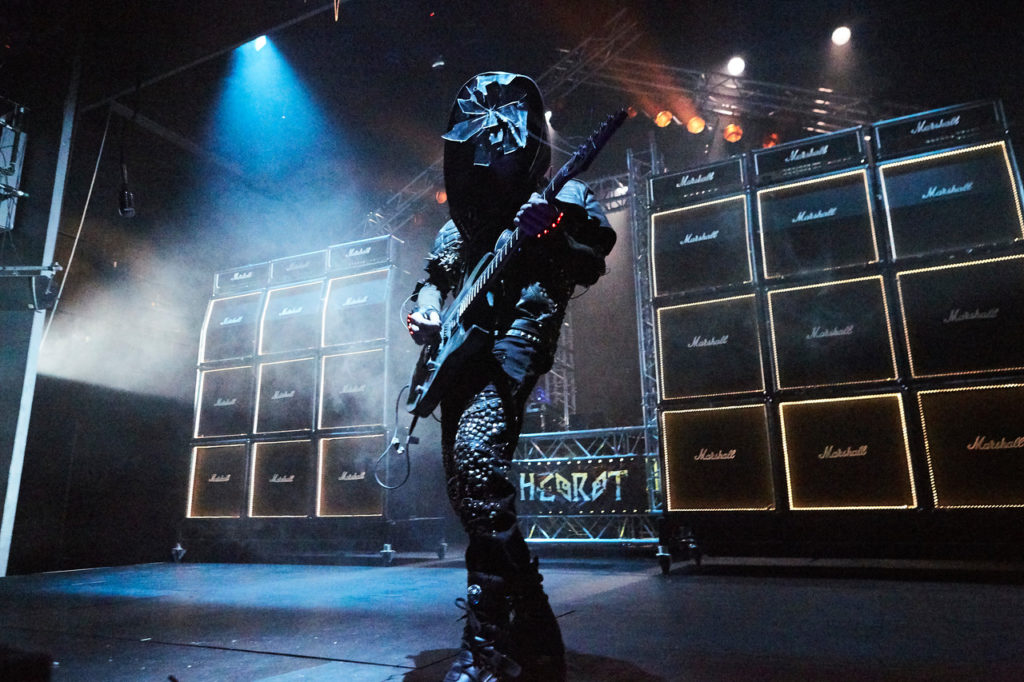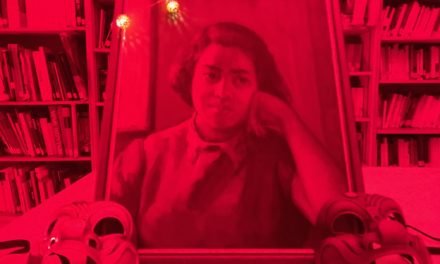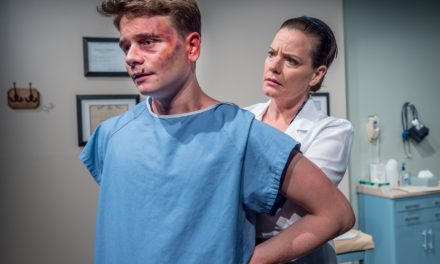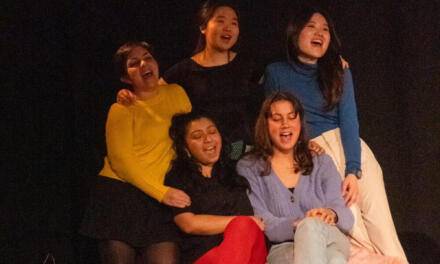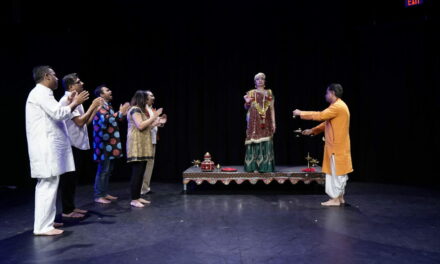How do you bring a 10th-century Old English epic closer to a 21st-century audience? And, more specifically, as this version at London’s Unicorn Theatre would have us ask: How do you bring a medieval tale of warrior-worship to audiences ages eight and above?
For all its potential resonances with Game of Thrones or World of Warcraft, Beowulf is not exactly English literature’s piece of cake. It features unpronounceable names, unimaginable locations and interminable accounts of impossible heroic exploits. Its long history has given rise to much scholarship and debate, multiple interpretations and attempts at retelling and modernization – most notably by J. R .R. Tolkien, Seamus Heaney and the 1980s British band Marillion, among others.
Under the impassioned leadership of its current artistic director, Purni Morell (who has also laid out her vision succinctly here), the Unicorn has been host to many wonderful and adventurous things. The theatre is consistent in treating all its audiences ages zero and above with utter commitment and respect in a quest to ‘deliver art rather than service’; and its penchant for exciting international collaborations will culminate in March 2018 by introducing to Britain the Swiss director Milo Rau and his controversial verbatim work Five Easy Pieces, performed by a cast of children.
With this in mind, it is no wonder that this particular version of Beowulf, commissioned from one of Britain’s most prolific writers/theatre-makers at the moment, Chris Thorpe, has been envisioned as a heavy metal gig. Both Thorpe and Beowulf have a northern provenance. In addition to being an award-winning writer, ensemble-theatre-maker, and performer, Thorpe has also made music and is a member of Torycore – a band in which political satire meets death metal. But the main achievement of his own take on this medieval epic is his earnest attempt to breathe new life into it by wrenching it away from the trenches of patriarchy.
In very brief terms, for those of us new to the story: Beowulf is a Scandinavian warrior hero who gets to duel against three major antagonists – the monster Grendel, Grendel’s own mother and, finally, fifty years later, a dragon. Thorpe’s version, judiciously directed by Justin Audibert, makes two major conceptual interventions. The first is to have the main hero depicted in a gender-fluid way by a female performer, and the second is to give much more character nuance to Grendel’s mother than she had usually been afforded in the past. Thematically, also, this version takes care to tease out and underline exactly what it needs to lead to its parting shot: Was I a good king? In many ways, this show would have been Brecht’s dream.
This version falls short of its promises too. In a non-dramatic, spoken-word format, Thorpe’s rich poetry finds a suitable match in the vocal prowess of performer Debbie Korley; however, her audience rapport, though often deliberately and helpfully scripted into the piece, gets drowned out by the demands of the plot and the suspense of the setup, which never really evolves into a full-blown gig. Dry ice and a few other spectacular stage tricks to add to the atmosphere, drawing an interesting parallel between heavy metal iconography and the Dark Ages. Puzzlingly, however, in the absence of a rhythm section, Danny Saul’s score, performed by Saul throughout the show, mostly stays on the safe side of electronica, with only a few set pieces for voice and guitar towards the end. There seems to be a bit of a gap between the supremely clever concept and its realization. The show even looks impressive in every way, mostly thanks to designers Samal Blak and Richard Williamson. But it sends its targeted audiences away somewhat confused, even if at times impressed.
Perhaps this was the result of a crisis of courage. Taking on any classic always goes with the potential expectation of honoring its stature and its implied cultural capital. Having decided on a radical rereading, the creators of this production may have felt the weight of the duty to give something back. But what was missing, in the end, was the element of glee in their own heroics.
1 October–5 November
By Chris Thorpe
Performers Debbie Korley and Danny Saul
Directed by Justin Audibert
This post was written by the author in their personal capacity.The opinions expressed in this article are the author’s own and do not reflect the view of The Theatre Times, their staff or collaborators.
This post was written by Duška Radosavljević.
The views expressed here belong to the author and do not necessarily reflect our views and opinions.

